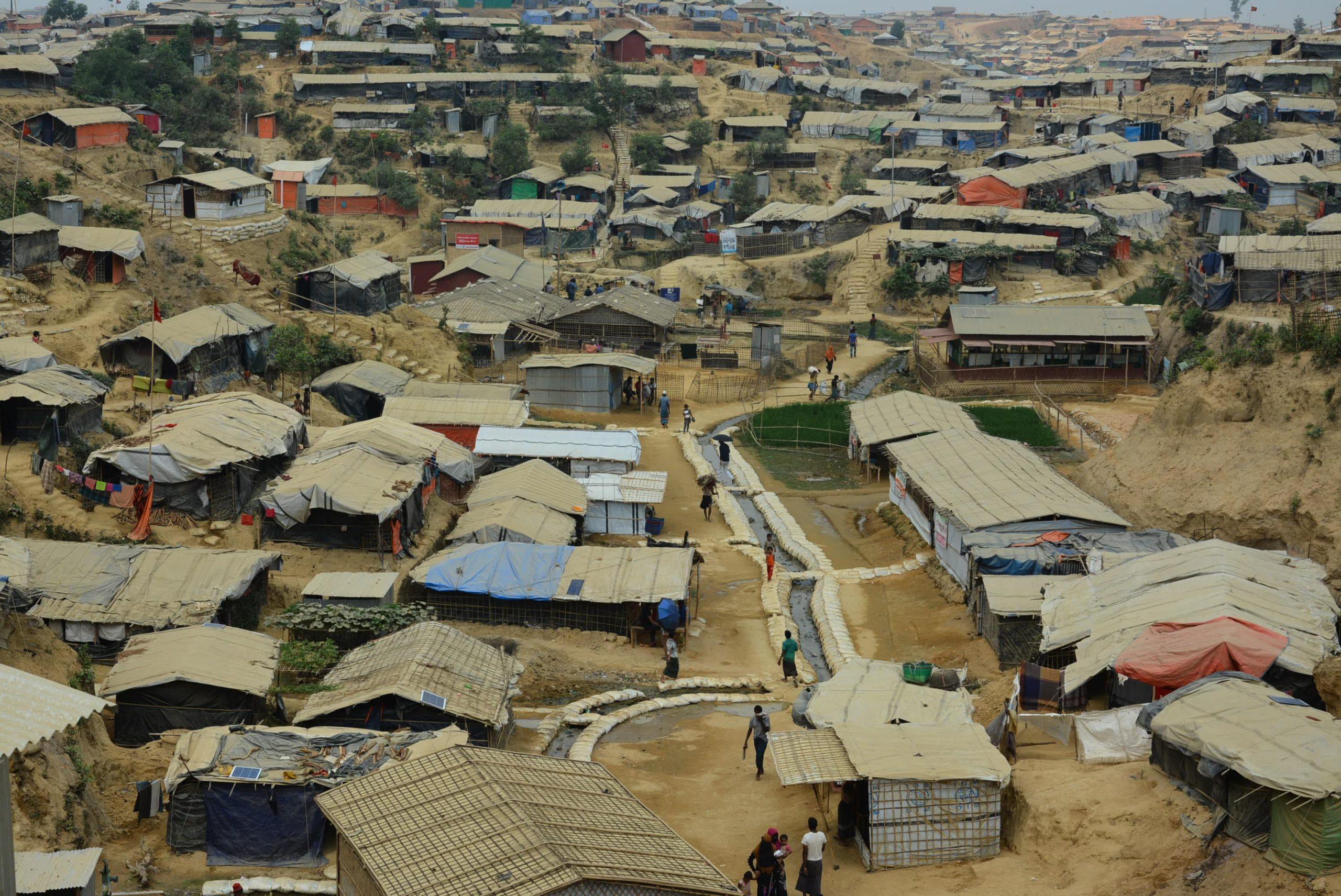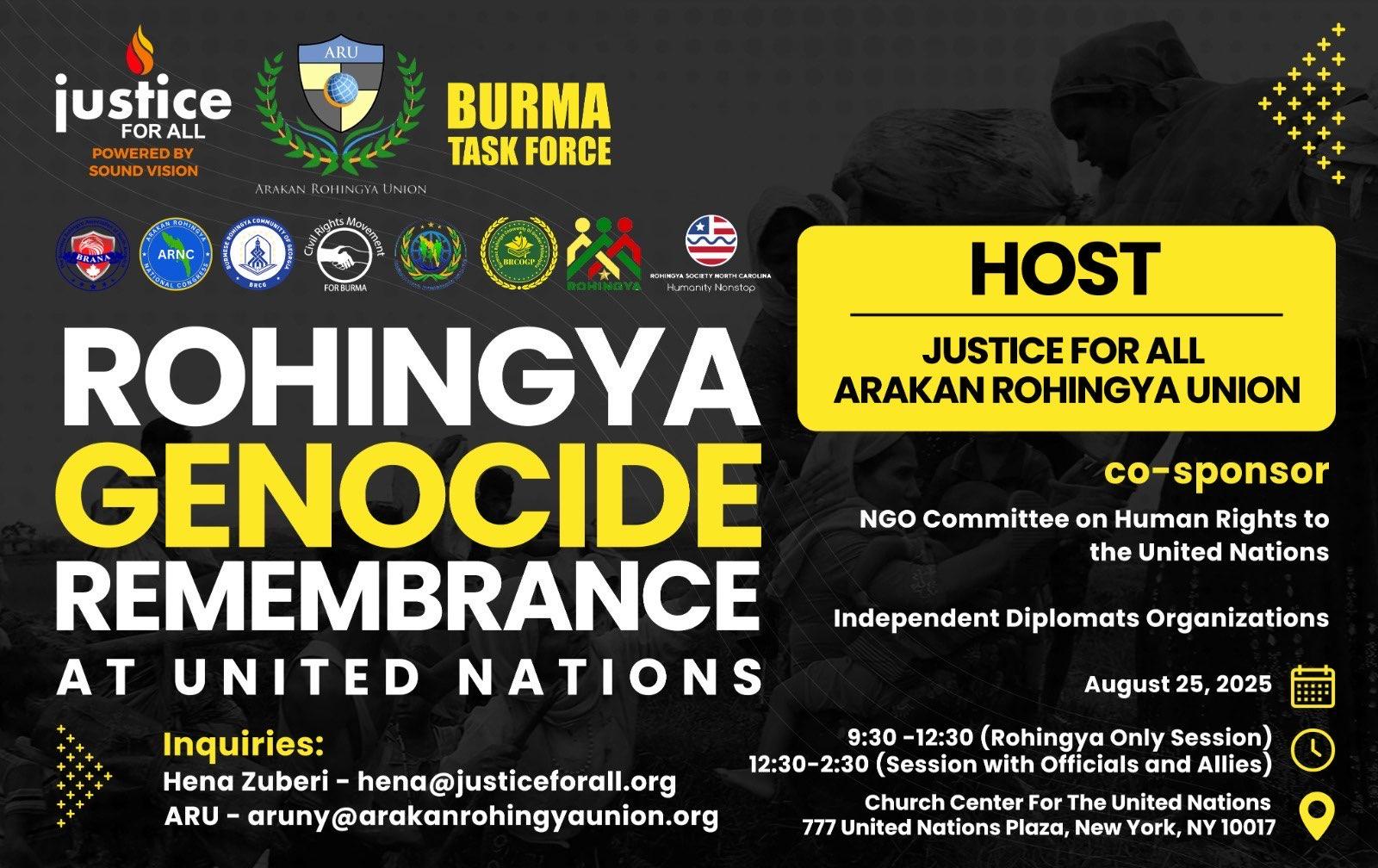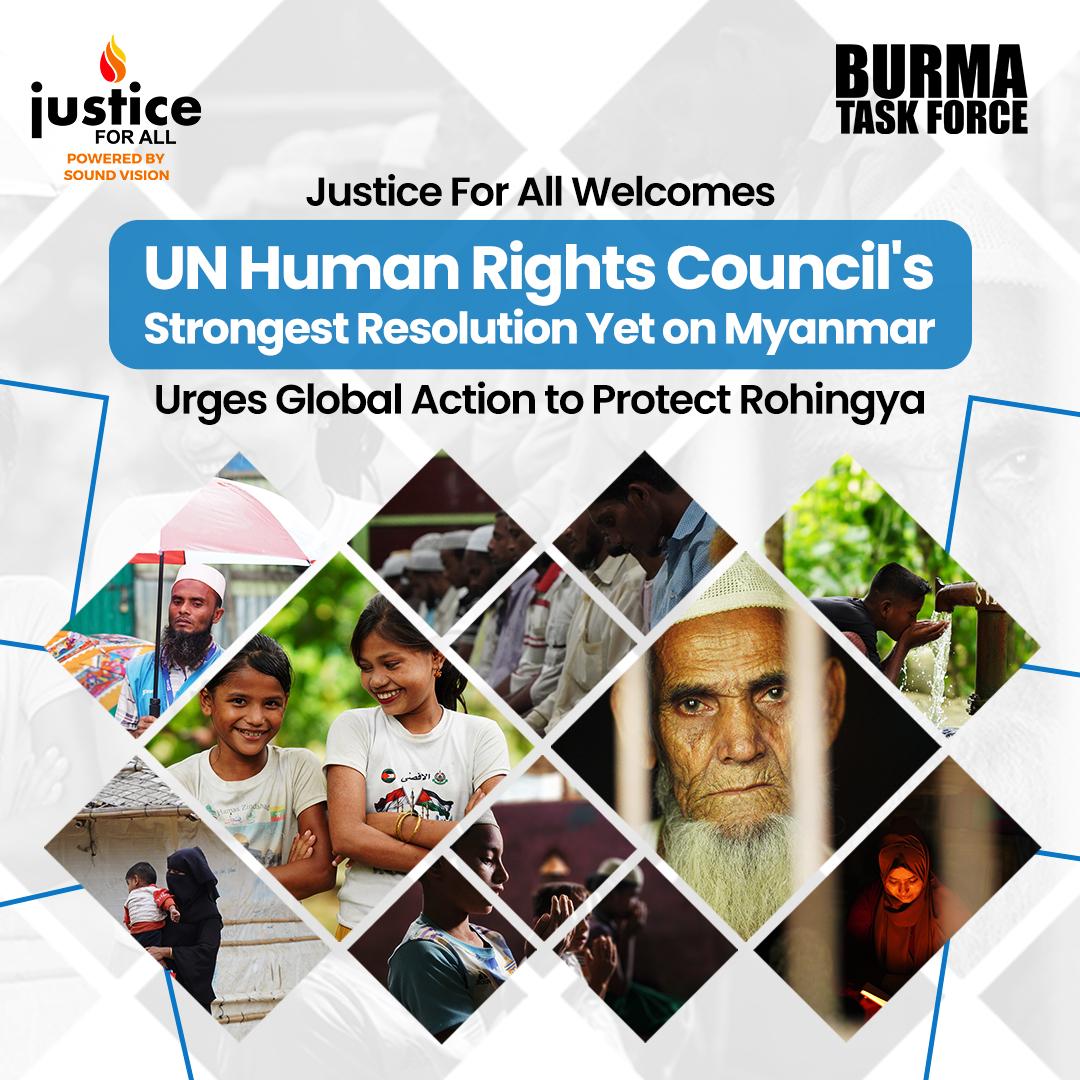FOR IMMEDIATE RELEASE CHICAGO, IL (August 12, 2025) Justice For All welcomes the latest annual…

Press Statement on ICJ Ruling July 22, 2022
Burma Task Force commends today’s decision of the international Court of Justice to dismiss objections by the military junta of Myanmar (Burma) to the ongoing Rohingya Genocide case. The case was brought by Gambia and is supported by Canada and The Netherlands. This decision allows the case to move forward.
Lawyers representing the Burmese junta had argued that the case should be tossed out because the court only hears cases between nation states and that Gambia was not an affected party. These arguments were rejected.
“Burmese arguments failed to convince the court,” stated Imam Malik Mujahid, Founder of Burma Task Force and the human rights NGO Justice for All. “It should also be remembered that the Burmese military leaders are perpetrators of genocide as well as an anti democratic coup that is destroying the entire nation of Burma, and so far these leaders have failed to abide by even the preliminary measures imposed by the court.”
The US Government formally recognized the Rohingya genocide in March 2022, but millions of this Muslim minority community remain displaced and discriminated against throughout the region.
Operating from The Hague, the International Court of Justice (ICJ) is the principal judicial organ of the United Nations, established by the Charter in June 1945.
In November 2019, Gambia filed the case before the ICJ alleging that Myanmar’s atrocities against the Rohingya in Rakhine State violate various provisions of the Genocide Convention. Myanmar became a party to the Convention in 1956.
This Application of the Convention on the Prevention and Punishment of the Crime of Genocide (The Gambia v. Myanmar) will take many years to resolve but may serve as a tool for Justice and eventually repatriation with rights and properties restored.
“Along with weapons purchased from China, Russia and India, lack of accountability allows the brutal Burmese military to remain in power,” stated Adem Carroll, UN Programs Director for Justice for All and Team Lead for Burma Task Force. “Though far too slow in its work, the world court matters. It offers hope for justice and builds a legal framework to protect human rights of minority and civilian populations. We commend defense lawyers and the judges committed to these protections; the alternative is a world with even more conflict and suffering.”



